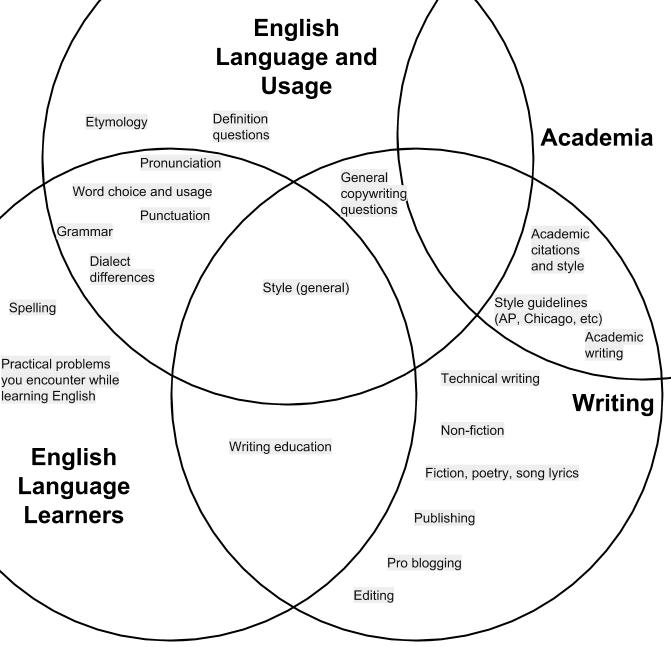We sometimes get questions about word usage, critiques of individual sentences, and grammar. So do English Language & Usage and English Language Learners, and those two sites have overlap with each other too.
Where should the boundaries among our sites be? What makes a question in this area on-topic on Writing? Note that it is perfectly ok for a question to be on-topic on more than one site on the network.
I hope that an outcome of this question will be better guidance in our FAQ, but I don't know if we're ready to jump straight to writing that yet -- hence this question.
For reference:
ELU permits:
- Word choice and usage
- Grammar
- Etymology (history of words’ development)
- Dialect differences
- Pronunciation (phonetics and phonology, dialectology)
- Spelling and punctuation
ELL permits:
- Word choice and usage
- Grammar
- Dialect differences
- Spelling and punctuation
- Practical problems you encounter while learning English
Writing permits questions about (see help for more):
- Non-fiction, technical, scholarly, journalistic, or blog writing, including the presentation of examples, charts, and diagrams.
- Writing fiction, poetry, or song lyrics.
- General copywriting, style, and organization.
- Questions asking for help expressing a concept or an idea, within limits. (See this meta post for more information.)
- The publishing and editing process itself.
Writing does not permit:
- Proofreading requests
- Requests to critique your work
- Questions asking what to write about
- Questions about the strictly interpreted correctness of English grammar or syntax rules
- Questions seeking to interpret or analyze an existing work] (except when applied to a real-world writing project)
The biggest areas of interaction with the other sites are "general copywriting" (permitted), proofreading (not permitted), and language correctness (not permitted).
Writing used to allow critique questions but no longer does.

